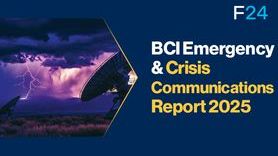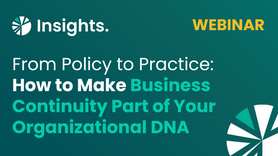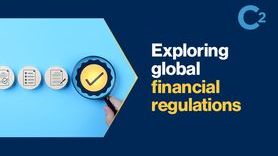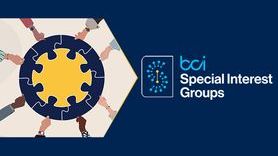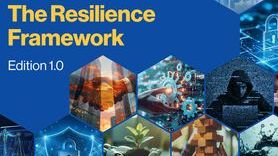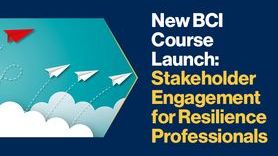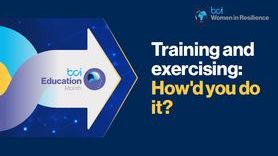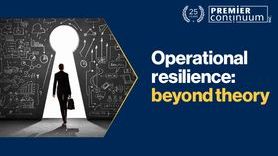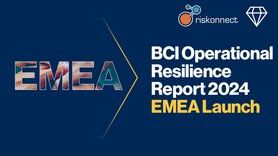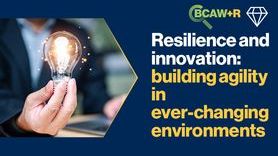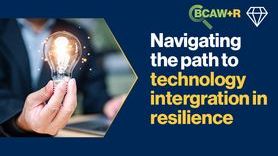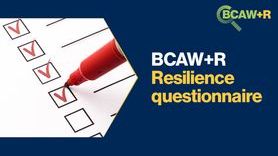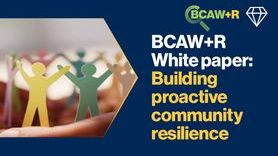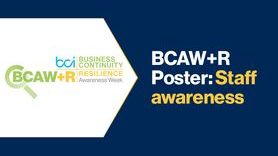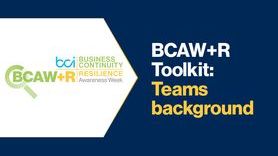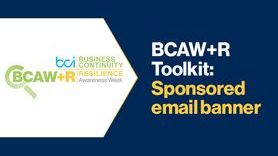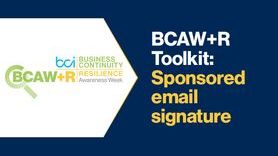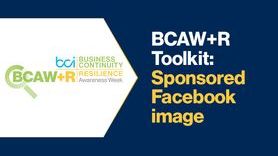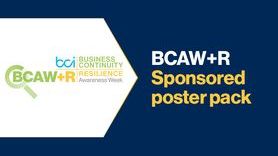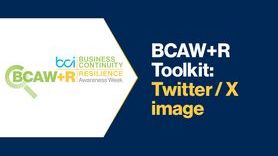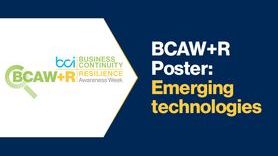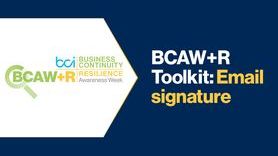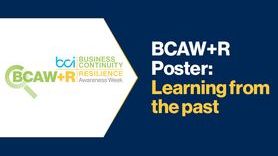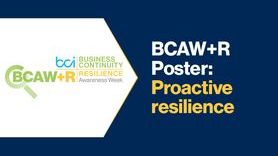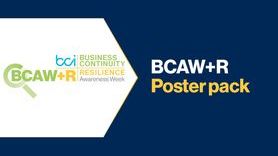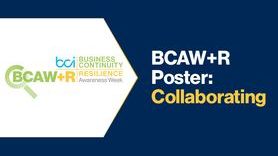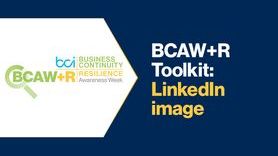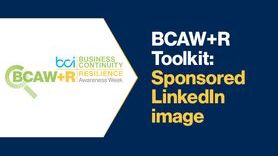Learning from the past, and preparing for the future, before, during and after the pandemic (COVID-19)
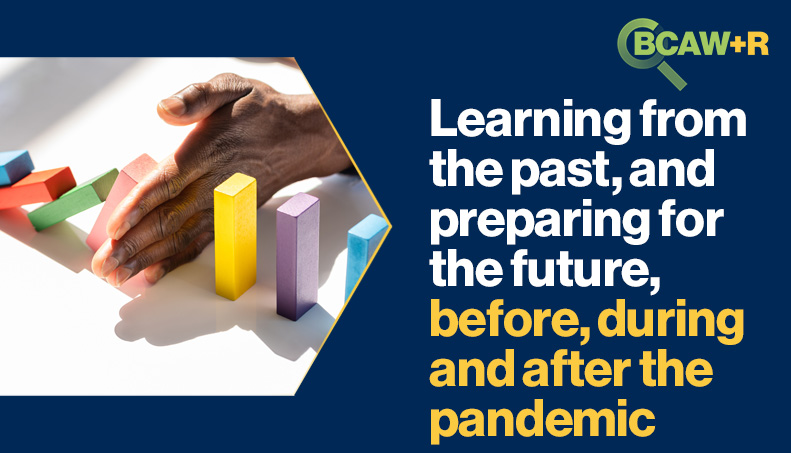
Executive summary
The global impact of COVID-19, beginning in March 2020, fundamentally transformed not only the business landscape but also the daily lives of individuals worldwide. Despite facing a setback due to the pandemic, this case study delves into how Allianz India exercised International Organization for Standardization (ISO) practices during the crisis, bolstering confidence. Formal implementation resumed in early 2021, leading to Allianz India’s journey, marked by adaptability and resilience in the face of the challenges brought by the pandemic adapted to the "new normal," and ultimately strengthened its resilience.
Introduction
The sudden onset of the pandemic in March 2020 forced a paradigm shift in our operating culture. Adapting to the new normal posed significant challenges, affecting not only our business operations but also the well-being of our employees. The need to balance business continuity with employee safety became a primary concern during this time.
- On March 23, 2020, Allianz India invoked contingency measures to address the challenges posed by the pandemic. These measures involved supporting all pillars and stakeholders to minimize business impact.
- A robust communication strategy was implemented, incorporating Crisis Unit Reviews, Ask Me Anything (AMA) sessions, awareness mailers, daily bulletins, and horizon scanning.
- Regular updates were provided to keep all stakeholders informed about the evolving situation.
- The initiatives were aligned with Allianz India's Kaizen framework, emphasizing continuous improvement and innovation in response to changing circumstances.
- In summary, Allianz India's initiatives during the pandemic reflect a comprehensive and proactive approach, incorporating technology, communication, governance, and analysis to overcome the challenges posed by the crisis.
Challenges
While the initiatives taken by Allianz India during the pandemic demonstrate a comprehensive and proactive approach, several challenges may have been faced in implementing and sustaining these measures. Here are some potential challenges:
- Operational disruptions: The sudden need for contingency measures could have led to operational disruptions as teams adjusted to new ways of working and potentially faced challenges in maintaining productivity.
- Technology implementation: Rapidly implementing new technological solutions, might have presented challenges in terms of training, integration with existing systems, and ensuring a smooth transition.
- Communication barriers: Despite the robust communication strategy, ensuring effective communication across all levels and departments, especially in a remote work setting, have been challenging. Language barriers, differing time zones, and varying levels of digital literacy among employees have posed communication challenges.
- Employee engagement: Maintaining high levels of employee engagement during a crisis, when employees may be facing personal challenges, have been a significant hurdle. Engaging remote teams and addressing concerns related to well-being and job security have been challenging.
- Compliance and legal requirements: Adhering to rapidly changing legal and compliance requirements, ensuring that the applications used in Allianz India evolving standards and regulations have required continuous updates and adjustments.
- Resistance to change: Employees and stakeholders might initially resisted changes to established processes and work habits. Adapting to new ways of working and accepting the implemented tools have posed a challenge.
- Data Privacy and security concerns: Implementing tools to track health-related information have raised concerns about data privacy and security. Ensuring compliance with data protection laws and addressing concerns about the misuse of sensitive information have been a challenge.
- Resource constraints: Allocating resources for the development and maintenance of the technological solutions, as well as for continuous training and support, have been constrained by budget limitations or competing priorities.
- Crisis fatigue: Over an extended crisis period, employees and leaders have experienced fatigue from continuously managing crisis situations. This have impacted decision-making, communication effectiveness, and overall morale.
- Supply chain disruptions: As Allianz India relied on external vendors or partners for certain services or technologies, disruptions in the supply chain had affected the timely implementation and functioning of initiatives.
Actions taken
To address these challenges, the Protection and Resilience Office (PRO) invoked contingency measures on March 23, 2020. Throughout disruption, PRO supported all pillars and stakeholders, minimizing business impact. Communication played a crucial role, with regular updates through Crisis Unit Reviews, Ask Me Anything (AMA) sessions, awareness mailers, daily bulletins, and horizon scanning. Multiple enhancements and innovations were implemented, aligning with Allianz India’s Kaizen framework. These efforts have contributed to minimizing business impact and maintaining stakeholder support.
- Tool 1: Was developed to meet the business demand for tracking and managing COVID-19 cases among colleagues. This application helped in reducing the time and effort of data collection, ensuring compliance with legal requirements and enhancing accuracy.
- Tool 2: Was introduced to track colleagues visiting the office, ensuring effective contact tracing and compliance with social distancing measures. This tool acted as a repository for legal requirements, allowing colleagues to select a seat based on fulfilling health-related declarations and uploading vaccine certificates.
- Tool 3: Aimed at reducing operational hours with annual cost benefits. This initiative saved a significant amount of time and resources.
- New ways of working (WoW): Acknowledging the shift in work dynamics, the organization considered non-office locations, including individual home workplaces, as potential areas of operation. The current location feature was introduced to enable quick support during crises and disaster situations.
- Target crisis communication: A proactive approach was taken to communicate with employees and their managers in potentially impacted areas, considering the non-office locations where employees continued to work under the new ways of working.
- Sensitivity analysis (SA): The organization implemented SA to help the Managers review the impact of staff shortages and plan accordingly. SA considered thresholds for unavailability of personnel, providing insights into the financial, customer, and operational impacts.
- Recovery time objective (RTO): SA, along with RTO, helped business lines understand if Service Level Agreements (SLA) were breached, allowing for timely adjustments and decision-making.
- Continued governance and analysis: Allianz India continues to use governance from Protection and Resilience team to ensure ongoing support for employees. The analysis, including SA, serves as an early warning system for businesses, empowering leaders to make informed decisions and implement work arrangements that minimize business impact.
Despite these challenges, the comprehensive and proactive approach taken by Allianz India indicates a successful navigation through the crisis, with a focus on continuous improvement and innovation. The ability to identify and address these challenges likely contributed to the overall effectiveness of the initiatives.
Results
The actions taken by Allianz India, as outlined in the provided information, have resulted in several positive outcomes in navigating through the challenges posed by the COVID-19 pandemic. Here are the key results of the mentioned actions:
- Minimized business impact: The invocation of contingency measures by Allianz India and the implementation of various tools, have contributed to minimizing the business impact. These tools streamlined processes, reduced operational hours, and ensured compliance with legal requirements.
- Enhanced communication: The robust communication strategy, including Crisis Unit Reviews, Ask Me Anything (AMA) sessions, awareness mailers, daily bulletins, and horizon scanning, has resulted in regular updates to stakeholders. This effective communication has likely contributed to maintaining stakeholder support and keeping all parties informed about the evolving situation.
- Operational efficiency: The introduction of various tools aimed at reducing operational hours has resulted in increased efficiency. These initiatives saved time and resources, allowing for a more streamlined approach to data collection, vaccination tracking, and other operational aspects.
- Adaptation to new ways of working (WoW): The acknowledgment of the shift in work dynamics and the consideration of non-office locations, including individual home workplaces, has facilitated a flexible and adaptable approach to work. The current location feature enables quick support during crises and disaster situations, demonstrating an agile response to changing circumstances.
- Proactive crisis communication: The proactive approach to crisis communication, including Target Crisis Communication and communication with employees and their managers in potentially impacted areas, has likely enhanced preparedness and responsiveness. This targeted communication strategy enables quick response and support where needed.
- Risk management through sensitivity analysis (SA): The implementation of Sensitivity Analysis (SA) has provided valuable insights into the impact of staff shortages on financial, customer, and operational aspects. This data-driven approach allows for informed decision-making, risk assessment, and planning for business continuity.
- Recovery time objective (RTO) compliance: The combination of SA and RTO has helped business lines understand if Service Level Agreements (SLA) were breached, allowing for timely adjustments and decision-making. This ensures compliance with established objectives and standards.
- Continued governance and early warning system: The continued use of governance from the Protection and Resilience team, along with ongoing analysis, serves as an early warning system for businesses. This proactive approach empowers leaders to make informed decisions, implement work arrangements, and minimize business impact during both large-scale contingencies and smaller-scale incidents.
In summary, the comprehensive and proactive approach adopted by Allianz India, along with the implementation of specific tools and strategies, has resulted in effective crisis management, enhanced operational efficiency, and the ability to navigate through the challenges posed by the pandemic. Continuous improvement and innovation have played a key role in Allianz India’s successful response to the crisis.
Lessons learned
The initiatives and actions taken by Allianz India during the pandemic have likely yielded valuable lessons that can inform future crisis management strategies. Here are some potential lessons learned from the described actions:
- The ability to invoke contingency measures promptly and adapt to changing circumstances is crucial during a crisis.
- Allianz India's agile response, including the development of tools and the consideration of new ways of working, demonstrates the importance of flexibility in crisis management.
- A robust communication strategy, including regular updates and targeted communication, plays a critical role in maintaining stakeholder support and ensuring that all parties are well-informed.
- Clear and transparent communication helps manage uncertainties and fosters trust.
- The successful implementation of tools highlights the role of technology as a catalyst for operational efficiency.
- Investing in innovative solutions can streamline processes, reduce operational hours, and enhance overall business resilience.
- Proactively communicating with employees and stakeholders in potentially impacted areas is essential.
- Targeted crisis communication allows for quick response and support, minimizing the impact of disruptions.
- Implementing tools like Sensitivity Analysis (SA) and Recovery Time Objective (RTO) enables data-driven decision-making. This approach provides valuable insights into the impact of staff shortages and helps in planning for business continuity.
- Acknowledging and adapting to new ways of working, including considering non-office locations, is crucial for business continuity. This lesson underscores the importance of having plans in place to support remote work and ensure operational efficiency.
- Continued governance and analysis from the Protection and Resilience team serve as an early warning system for businesses. Lessons learned include the importance of ongoing monitoring, analysis, and governance to identify potential risks and address them proactively.
- Implementing tools for tracking health-related information requires a careful balance between compliance with legal requirements and maintaining operational efficiency. Lessons learned may include refining processes to ensure both legal compliance and efficiency are achieved.
- Prioritizing employee well-being demonstrates a commitment to the health and safety of the workforce.
- Lessons learned emphasize the importance of integrating employee-centric measures into crisis management strategies.
- The alignment of initiatives with the Kaizen framework highlights the importance of continuous improvement and innovation.
Allianz India strive to learn from each crisis, implement improvements, and stay proactive in their approach. By reflecting on these lessons learned, Allianz India can further strengthen its resilience and preparedness for future challenges, ensuring a more effective response to potential crises.
Conclusion
In conclusion, Allianz India's response to the challenges posed by the COVID-19 pandemic reflects a comprehensive, proactive, and innovative approach to crisis management. The initiation of contingency measures, implementation of targeted tools, and adherence to a robust communication strategy have resulted in significant positive outcomes. Lessons learned from this experience emphasize the importance of agility, communication, technology, data-driven decision-making, and employee well-being in crisis management.
As Allianz India continues to learn from this crisis, the lessons gleaned will undoubtedly contribute to the organization's ongoing efforts to strengthen its resilience and preparedness for future challenges. The successful navigation through the pandemic reinforces the importance of a holistic and integrated approach to crisis management, where technology, communication, governance, and analysis work synergistically to ensure a robust response to unforeseen circumstances.
About the author




